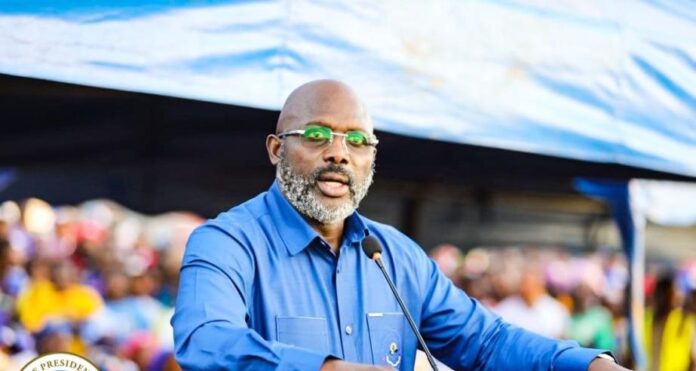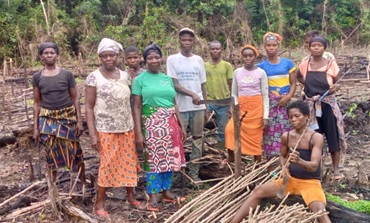MONROVIA — Senator Amara Konneh, serving as a panelist on Spoon Talk last evening, voiced concerns about the current state of leadership within the Coalition for Democratic Change (CDC). He pointed to conflicting statements made by former President George Weah regarding his potential bid for the 2029 presidential election. Konneh highlighted the confusion among CDC members, noting that Weah has alternated between saying “I will not run” and “I will run.”
Former Representative Acarous Moses Gray, a prominent figure in the former ruling CDC, responded to Konneh’s concerns by assuring that Weah will indeed run in 2029. “Rest assured that former President Weah will run in 2029, and you all get ready for the political nuclear weapon,” Gray stated.
Gray’s assertion prompted a strong reaction from Vandalark R. Patricks, a notable critic and political commentator. Patricks criticized the CDC’s leadership and its handling of governance during Weah’s tenure. He urged the CDC to apologize to the Liberian people for what he described as a betrayal of their trust following the overwhelming support they received in 2017.
Patricks’ statement highlighted several key points of contention:
- Betrayal of Trust: Patricks accused the CDC of betraying the millions of people who supported Weah in 2017, stating that once in power, the party became arrogant and disrespectful. He claimed that the CDC marginalized intellectuals and rewarded cronies instead of addressing the needs of the people.
- Failure to Prosecute Corruption: Patricks criticized the CDC for failing to dismiss and prosecute those who were looting state resources. Instead, he alleged that corrupt officials were elevated, while the masses continued to suffer in poverty.
- Lack of Clear Agenda: Patricks argued that the CDC currently lacks a clear agenda for recapturing power in 2029. He emphasized that civil society organizations, rights activists, and media that once supported the CDC have now distanced themselves due to the party’s perceived failures and arrogance.
- Loss of Political Partners: Patricks warned that the CDC would struggle to succeed without the support of political partners who played a crucial role in their 2017 victory. He described the current state of the CDC as “politically butt naked,” highlighting the party’s isolation and lack of strategic direction.
As the political landscape in Liberia continues to evolve, the CDC faces significant challenges in maintaining its relevance and recapturing the public’s trust. The mixed signals from Weah and the strong criticisms from both within and outside the party suggest a period of introspection and realignment may be necessary for the CDC to regain its footing ahead of the 2029 elections.
The debate over Weah’s potential candidacy underscores broader issues within the CDC regarding leadership, governance, and accountability. As the party navigates its opposition role, it will need to address these concerns and work towards rebuilding its alliances and public image.
In the meantime, the Liberian public remains watchful, with many eager to see how the CDC responds to these internal and external challenges. The path to 2029 is likely to be fraught with political maneuvers and strategic decisions that will shape the future of the CDC and its place in Liberia’s political landscape.







